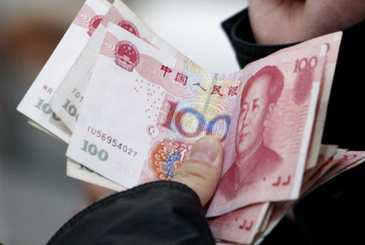Income distribution system needs tweaking

With inflationary pressures impacting low and middle-income members of society the most, the government must further reform the income distribution system, an economist said Saturday.
Chi Fulin, director of the China Institute for Reform and Development, a think tank affiliated with Hainan provincial government, made the remarks at a forum held in Haikou, Hainan Province Saturday.
Chi suggested that personal incomes should grow no less than 8 percent during the period 2010-15, which will ensure they keep pace with the nation's gross domestic product (GDP).
GDP is generally defined as the market value of goods and services produced by a nation.
Last year, China's GDP grew by 8.7 percent, while this year, annual GDP is estimated to be about 10 percent, the Chinese Academy of Sciences predicted.
Labor remuneration as a percentage of GDP should also be expected to reach 50 percent by 2015, Chi added.
However, according to a report done by Song Xiaowu, director of China Society of Economic Reform under the State Development and Reform Commission, labor remuneration as a percentage of GDP dropped from 51.4 percent in 2001 to 39.74 percent in 2007. That compares with an increase to 74.3 percent during the 1980-1984 period in the US.
"For years the government has accumulated more and more wealth," economist Mao Yushi Sunday told the Global Times.
In the first three quarters of this year, China collected 6.30 trillion yuan ($937.38 billion) in income taxes, up by 22.4 percent compared with the same period last year.
Of that number, personal income taxes were 371.6 billion yuan ($55.26 billion), up 21.5 percent year-on-year.
In 2008, the average salary of urban workers was 3,293 yuan ($489.67) in Dongguan in Guangdong Province, compared with 971 yuan ($144.39) for migrant workers, according to Song's study.
Meanwhile, Chi also suggested that the government should raise the threshold for individual income taxation.
Government changes in the threshold for individual income taxes include an increase from 800 yuan ($118.96) to 1,600 yuan ($237.92) in 2006, followed by a second raise to 2,000 yuan ($297.40) in 2008.
 0
0 






